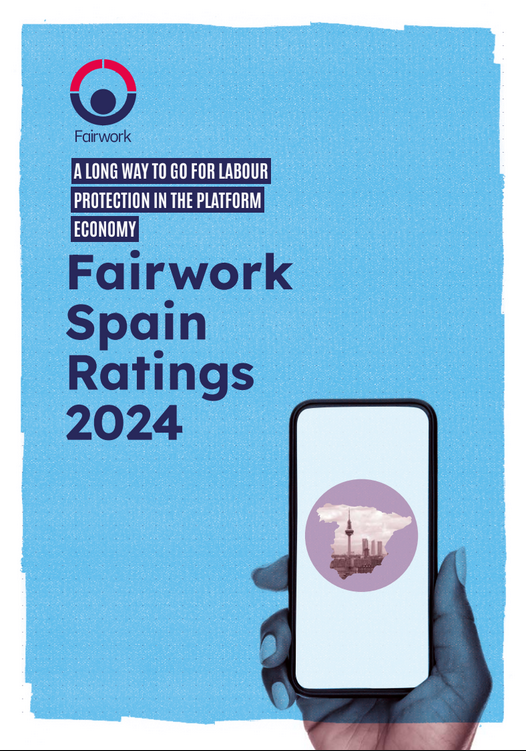Fairwork Spain Ratings 2024: A Long Way to Go for Labour Protection in the Platform Economy
This is the first-ever report in Spain based on the Fairwork methodology. It evaluates the working and employment conditions of seven digital platforms in four economic sectors: delivery, in the case of Just Eat, Glovo and the cooperative La Pájara; ride-hailing, with the Cabify and Uber platforms; moving, home maintenance and mounting services, with the experience of Taskrabbit; and home cleaning services in the case of MyPoppins.
The analysis of these seven platforms has focused on Fairwork’s five principles for ensuring fair and decent work, the contents of which are presented in detail in this report: fair pay, fair conditions, fair contracts, fair management, and fair representation.
The research found the majority of these companies were unable to evidence a minimum standard of fair work. The La Pájara cooperative obtained eight points out of a possible 10. The Just Eat platform scored seven points, while Cabify, Uber, and TaskRabbit scored just two points. The remaining two platforms, Glovo and MyPoppins have not provided sufficient evidence to be awarded any of the 10 possible points.
These findings suggest that many of the around 2.6% of working-age people in Spain who depend on platform work as their main source of income (and the up to 18.5% who work via platforms more occasionally) face low pay and dangerous conditions at work. Given Spain’s reputation for innovative regulatory interventions meant to protect gig workers (namely its “Rider Law”) the findings of this report are important for pointing to the gaps that still exist in its protections for workers.
Read report in:

